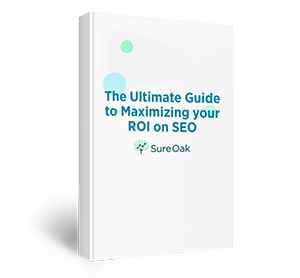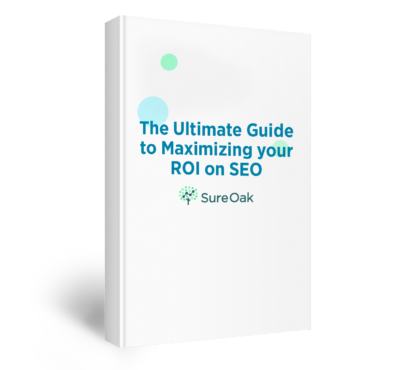The search engine results page (SERP) rankings algorithm is constantly changing. This is necessary to improve the accuracy of the results shown. It is also critical to prevent black hat SEOs from abusing the algorithm through keyword stuffing and link farming techniques. Both of these are now defunct techniques that will likely hurt your rankings. That’s why it’s important to reevaluate your strategy regularly. In light of that, it’s worth asking: are meta tags still important today, and if so, which have the greatest effect on SEO?

What are Meta Tags?
In general terms, the term “meta” means to transcend or go beyond. Just as the “metaverse” goes beyond the physical universe, meta tags also go beyond what is actually seen on your web pages.
Meta tags are snippets of HTML code that you add to your website’s header to store this additional information. If you are unfamiliar with coding, this can sound much more daunting than it actually is. Any good website builder will have a page for you to enter the information without the need for coding. These can be things as simple as the title of a webpage that users can see at the top of the page in the browser or the description of a page that users see in SERP results.
The Different Types of Meta Data
There are several different types of metadata, with the information showing in different places and for different purposes. Let’s highlight some key tags you should know to optimize your website’s SEO.
Title Tag
The title tag is seen at the top of the browser window when it’s open and is also visible on SERP results. This is the most important meta tag, as it provides the initial information to search engines about the page’s topic. It is also important for your click-through rate (CTR) because it’s the first thing that will attract someone searching for that information. Thus, you should make sure you have a clear page title that includes relevant keywords.
Meta Description
The meta description is also an important element for maximizing your CTR. It elaborates on the title to provide a brief overview of what users should expect to see when they click the SERP link. The meta description should be a clear and concise summary, accurately reflecting the page’s content. This is no time for clickbait.
Keywords
Meta keywords are a list of keywords that are relevant to your page. You don’t need to worry about this meta tag, though. Meta keywords will not impact your ranking. It has gone the way of keyword stuffing and link farming and is essentially irrelevant. Keywords remain a crucial part of SEO, but rather than putting them in a meta tag, you should spread them throughout your content organically.
Canonical Tag
Canonical tags direct search engines to the original version of any duplicate pages. There are several reasons that a page may have duplicates. A simple reason is that it’s an accident. You may have updated your URL structure and forgotten to delete all pages with old URLs.
You may also have a design that reuses content across different URLs. This can occur with product pages or in pagination, depending on how they are coded. If you have identified any duplicate pages, then using the canonical tag ensures that your original page’s SEO won’t be adversely affected. Canonical tags are not displayed anywhere; they just help search engines understand how to interpret your website.
Robots
The robots tag is another one that speaks directly to search engines and isn’t visible publicly. It tells search engines which pages to crawl and how to index them. This means you can hide pages from search engines if you choose to. This tag also tells search engines how often to crawl your website. Consider increasing the frequency if you are updating your site regularly.
Robots are also used on links. You can choose to have “follow” or “no follow” links. The distinction between these two is crucial when you are link building.
Social Media Tags (Open Graph and Twitter Cards)
Social media tags give you control over how the link to your webpage is displayed on social media. The two types of tags are Open Graph and Twitter Cards. Most social media platforms use Open Graph, namely Facebook, LinkedIn, and Pinterest. Twitter Cards are specifically for Twitter.
Social media tags don’t necessarily influence your search ranking. However, they do have the power to increase your CTR on social media. A more attractive social media presence will organically drive additional traffic to your webpage, improving rankings in the long run.
How Meta Data Impacts SEO
Metadata impacts SEO in several ways. Keywords in the meta title and meta description are important elements. The quality of these two tags impacts your CTR, which can improve your ranking. Canonical and robot tags talk directly to search engines and dictate how they should read your website.
Is Meta Data a Ranking Factor?
Search engines favor well-organized sites, and correctly using metadata is one important element of this. If you don’t use them correctly, then search engines will downgrade your ranking. Metadata also gives crucial information about your webpage that a person will use to decide to click on your webpage or not. The more people click on your page, the higher your ranking will be.
How Search Engines Utilize Meta Data
Canonical and robot meta tags help search engines determine how to read a website. The title and description tags display information to users searching for content. In the image below, we can see the tile tag displayed in blue. The large and colorful font makes it stand out. The meta description is shown below. Keywords that match the search term are highlighted to emphasize the relevance to the user.

Click-Through Rates
Your click-through rate is the percentage of people who click on your link out of the total number who see it. Your meta title and meta description are crucial factors in determining your click-through rate. Making them clear, concise, and appealing encourages someone to click on your link rather than scroll past it.
Technical SEO
Well-constructed title tags and description tags will positively affect your search ranking. Technical SEO tags such as canonical and robot tags could be described as anti-negative tags more accurately. This means that they don’t positively affect your ranking but can prevent issues when used correctly.
Best Practices for Meta Data SEO
Merely applying meta tags to your web pages isn’t enough. You need to use best practices to make sure they are optimized. Following a few simple tips will make sure you’re getting the most out of your hard work.
Crafting Effective Meta Titles for SEO
- Keep it concise: Search engines will only show 60 characters of your title, so keep it within this limit. Remember that this includes spaces.
- Use your primary keywords: The primary keyword(s) should appear in the title, as this is the first thing a potential visitor will see. There should be no confusion about the page’s content. It also communicates to the search engine the topic of the web page.
- Vary your titles: It can be tempting to use a template for your titles, particularly if you have a large number of pages. Avoid doing this. Each title should be unique and specific to its page.
Writing Compelling Meta Descriptions for SEO
- Keep it concise: The meta description has a limit of 160 characters.
- Use keywords: You should also take this opportunity to include keywords. Feature your primary keyword again and utilize the additional characters to include secondary keywords too.
- Write naturally: As with your content, it’s important to remember that this will be read by humans as well as search engines. Naturally, write your meta description.
How to Incorporate Keywords into Meta Titles and Descriptions
When writing your meta title and description, try to include your primary keywords early if this sounds natural. This will signal their importance to search engines and catch human readers’ eyes.
Avoid Keyword Stuffing in Meta Data
You don’t want to overthink getting in as many keywords as possible. Also, avoid being inflexible with their location. Most importantly, your topic is obvious, and a human can comfortably read your meta tags. As long as your content is clearly related to your target keywords, you should be able to include them naturally when describing the content.
Watch Out for Technical Mistakes
The two technical tags we have covered are the robot and canonical tags. Making sure there are no errors in these allows search engines to crawl your pages correctly. Be sure to place the robots.txt file in the root directory and ensure the canonical tags point to the correct page. These two elements are critical. Again, if you’re using a website builder, it should handle these things for you. If you are not confident with HTML, consult an expert. The SEO experts at Sure Oak are always available to explain anything you’re unclear about. If you have questions about your site’s meta tags, simply book a free strategy session.
Your Next Step: Leveraging Meta Data for Better SEO Rankings
You’re ready to start now that you know the key meta tags to improve your SEO rankings. Remember to implement best practices for all tags so that people will see and avoid mistakes with technical tags, and you’ll start seeing improved click-through rates and rankings in no time.





